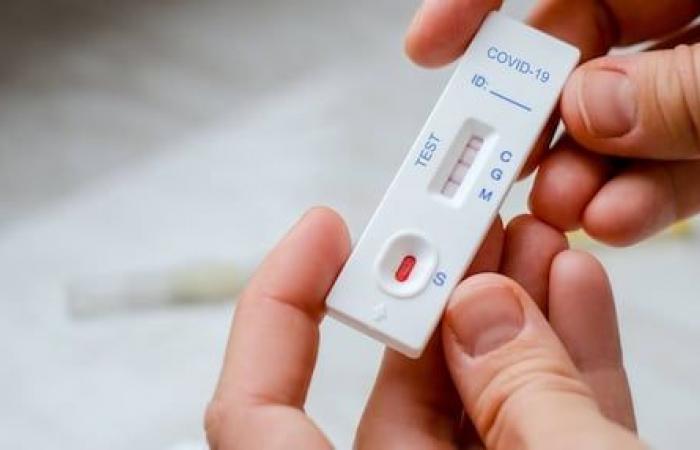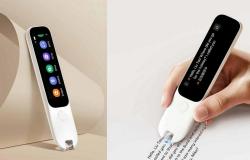According to the most recent data from the National Institute of Public Health of Quebec (INSPQ), the positivity rate for a COVID-19 test was, in the first week of December, 8.8%. Indeed, of the 5,273 people who recorded their test results, only 462 had the disease. For comparison, the positivity rate at the start of December 2023 was 25.6%, with 6,261 positive cases out of 24,478 people who tested.
The same data also indicates a marked increase in the number of hospitalizations due to complications from COVID-19. After a lull in the spring and a peak of 1,881 hospitalizations in September, the number of patients occupying a bed has decreased slightly, but is still above 1,000.
What symptoms to watch for?
Public health indicates that most symptoms of COVID-19 tend to appear five to ten days after contamination. However, they can be observed within two to four days following infectious contact.
Among those that should alert you, we find:
- Fever;
- Sudden loss of smell and/or taste, without nasal congestion;
- Cough;
- Shortness of breath or breathing problems;
- A sore throat;
- Chills.
If you have at least two of the symptoms below, we also recommend getting tested:
- Runny nose or nasal congestion of unknown cause;
- Headaches;
- Generalized muscle pain not attributable to exercise or physical exertion;
- Loss of appetite;
- Great fatigue;
- Diarrhea;
- Stomach aches.
How to get tested?
Self-tests proved very effective at the height of the pandemic, indicates a study by a researcher from the Research Institute of the McGill University Health Center published last winter.
But the Quebec government no longer recommends performing rapid tests at home for self-diagnosis. The tests are no longer distributed in a large number of local service centers.
Instead, public health recommends going to a local service point to be tested for COVID-19 (although there must be tests available on site, this is not always the case!) There you can also be vaccinated free of charge by appointment, provided you have not recently had the disease.
Some companies still sell COVID-19 tests online. Be prepared to pay a hefty sum to get them, however, as they are no longer free, as was the case at the height of the pandemic.
If you still have rapid screening tests at home, you can use them. Health Canada indicates that most of them can be stored and used for up to 24 months after their date of manufacture.
Expensive paid tests
Eden Telemed, a company established in Montreal, for example, offers to have you take the test at its offices or at your home. However, you have to pay $119 to $226 before taxes depending on the service desired.
Located in Calgary, Alberta, Rapid Test and Trace Canada also offers at-home testing kits. Again, the cost varies depending on the type of test you want to perform: it ranges from $55 to $199.50, not including shipping.
I think I have COVID-19: what should I do?
“If you have symptoms similar to those of COVID-19, it is generally not necessary to get tested. The most important thing is to follow the actions to limit the transmission of infectious respiratory diseases,” indicates the government of Quebec.
If you think you have COVID-19 or have symptoms, it is recommended to avoid social activities and wear a mask if you must leave your residence. At home, disinfect surfaces. At all times, wash your hands regularly for at least 20 seconds.
However, if you notice a deterioration in your condition or discomfort due to the severity of the symptoms, do not hesitate to go to the hospital.
Also read: How to recognize respiratory viruses?
The Coops de l’information are proud to team up with Verdict santé, the new media dedicated to health and food from Éditions Protégez-vous, in order to offer you content every Tuesday that will help you take care of your health and well-being. -be in hand on a daily basis. Discover more content on the website Health verdict.






